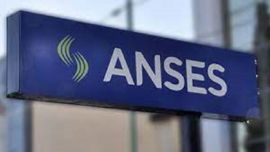Social and activist groups across Argentina deployed their forces on Wednesday with massive demonstrations in 50 cities to demand that the government declare a food emergency and cut back on tariffs.
Falling purchasing power and recent hikes to the cost of living have sparked outrage against the government. Electricity and gas bills have soared since President Mauricio Macri took office in 2015, after he moved to slash more than a decade of heavy Kirchnerite-era subsidies.
"We are losing work, food, education, housing... it's desperation that is emerging among our people," said Osvaldo Ulacio, 60, as he marched in the capital.
"They have left us no other tool than to come out in the streets to fight for our rights," added 29-year-old Diego Quintero.
Groups started demonstrating at 10am in Buenos Aires, blocking traffic across Avenida de Mayo from Paraná to 9 de Julio, Perfil reported, with protesters converging on the Obelisk.
The Confederación de Trabajadores de la Economía Popular (CTEP), the Corriente Clasista y Combativa (CCC), Barrios de Pie, Frente Popular Darío Santillán and the Frente de Organizaciones en Lucha (FOL) were among those who united for the rally, which went on until 2pm.
Demonstration leaders Esteban Castro, Juan Carlos Alderete and Daniel Menendez spoke on a stage in front of the thousands gathered on the avenue.
“Hunger had returned to our neighbourhoods, it’s the worst year since the 2001 crisis and we won’t stand it any more," said Daniel Menéndez, one of the protest leaders.
Argentina was gripped by an economic crisis last year that forced Macri to agree to a US$56-billion bailout loan with the International Monetary Fund. It was sparked by a fall in confidence in the currency, with the peso losing more than half its value against the dollar last year, while inflation finished 2018 at 47.6 percent.
The country officially entered recession in December after the INDEC statistics bureau revealed the economy had diminished during the third quarter of 2018, the second quarter in a row it had done so.
"This is a serious crisis, with falling wages [down 20 percent from last January] and the closure of many factories and stores. Our soup kitchens are full of people," said Juan Carlos Alderete, another protest leader.
As Argentina's next election approaches, protesters are urging the government to offer more help to those suffering most from economic turmoil. The International Monetary Fund predicts that GDP will fall by 2.6 percent this year.
Presidential elections will be held on October 27 this year.
- TIMES/AFP/NA
























Comments